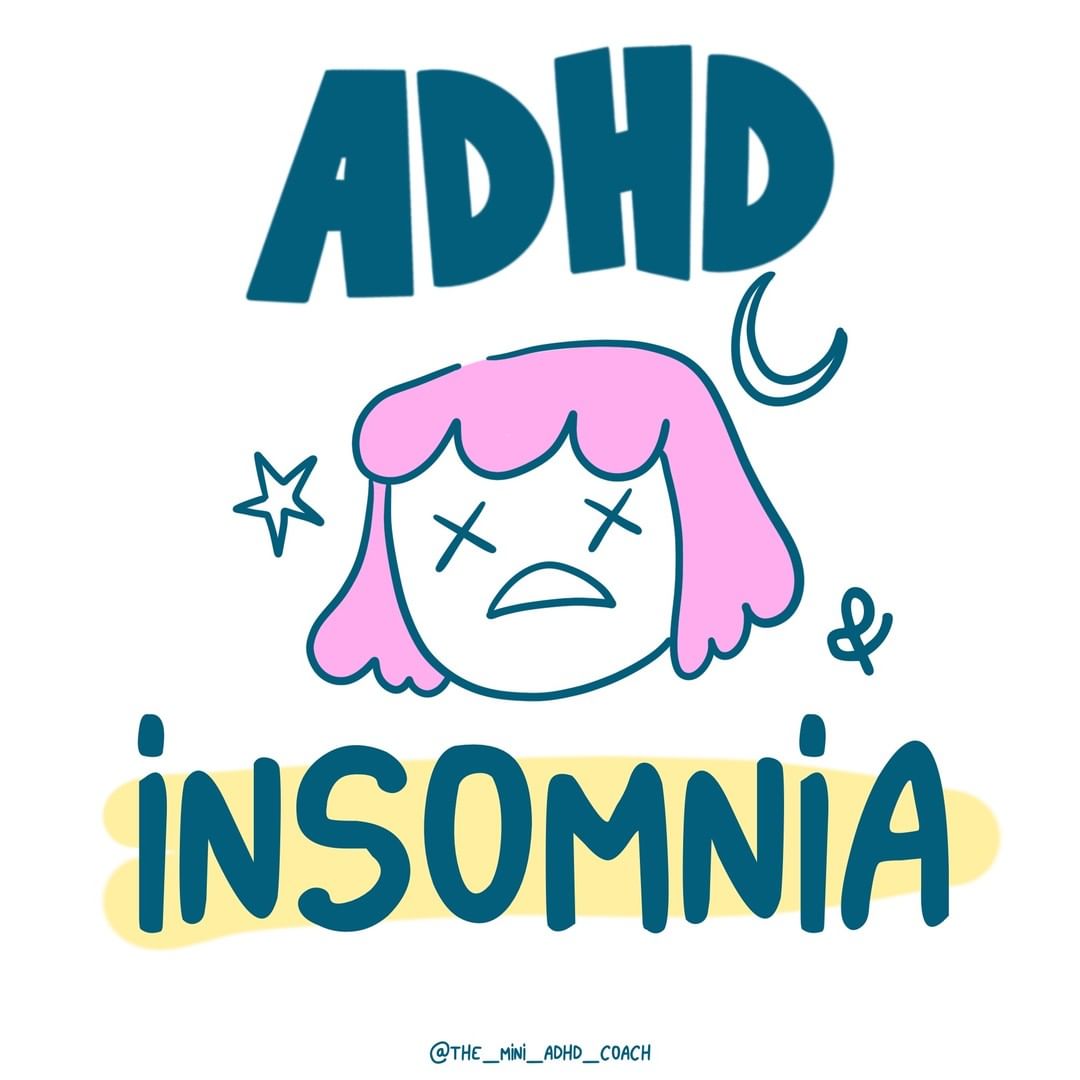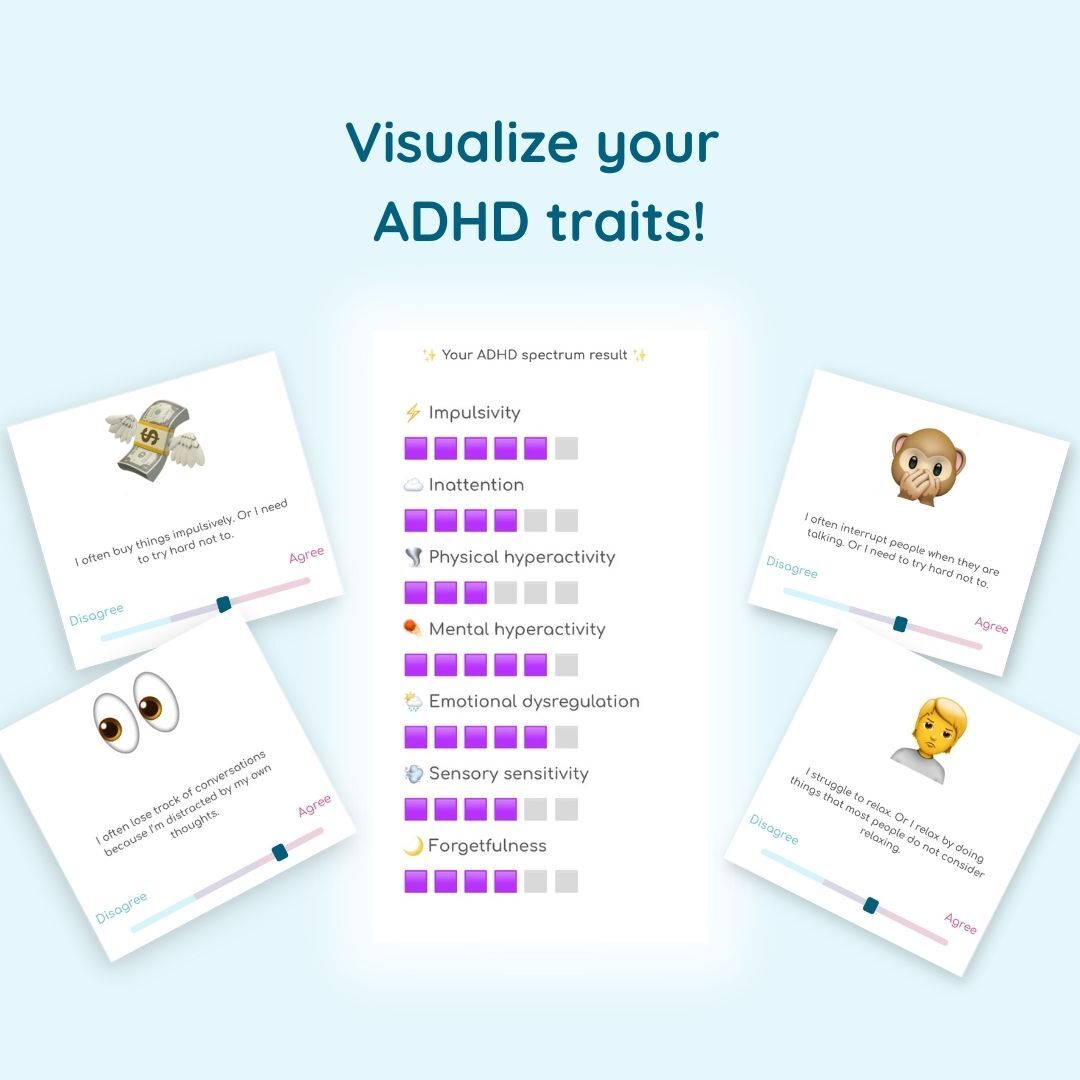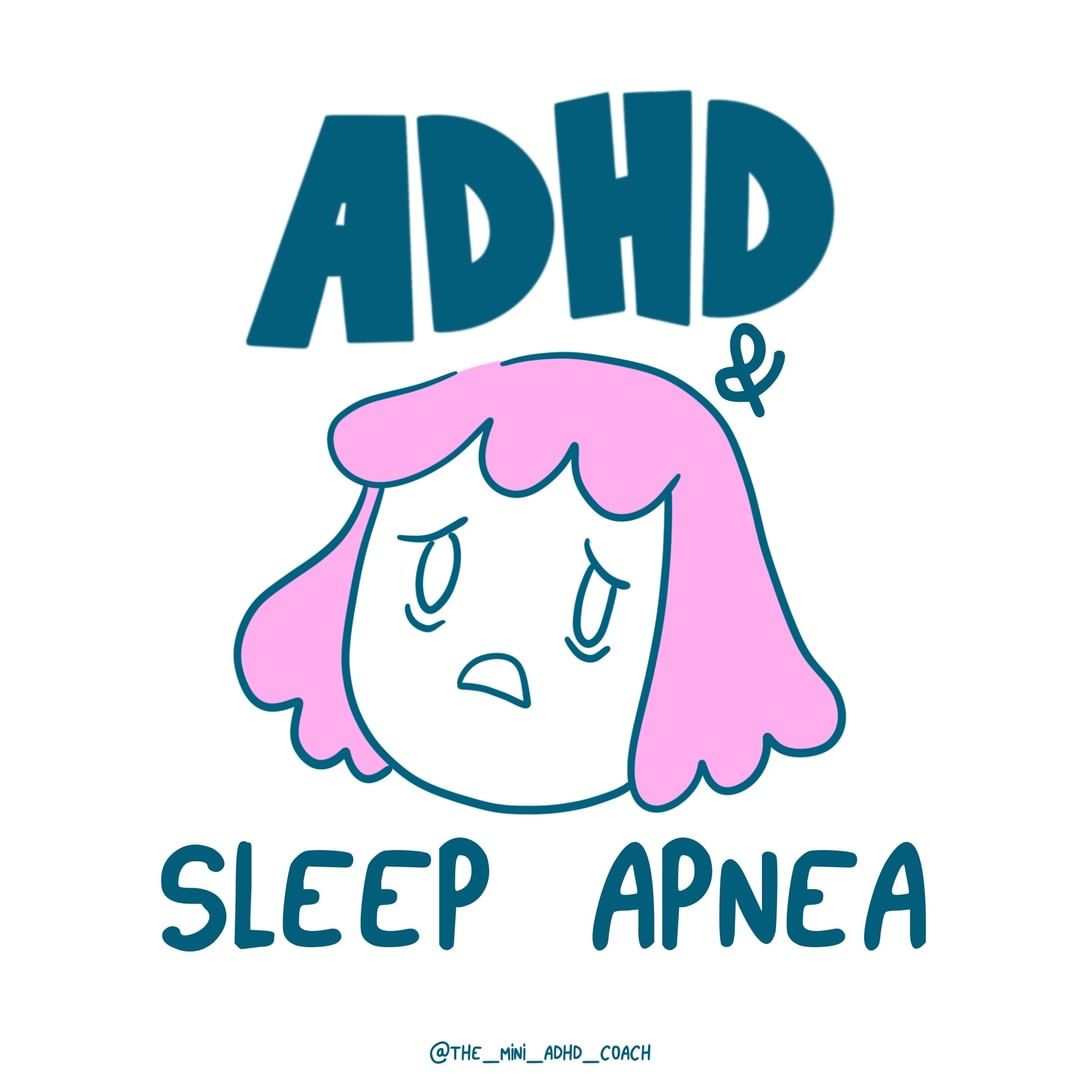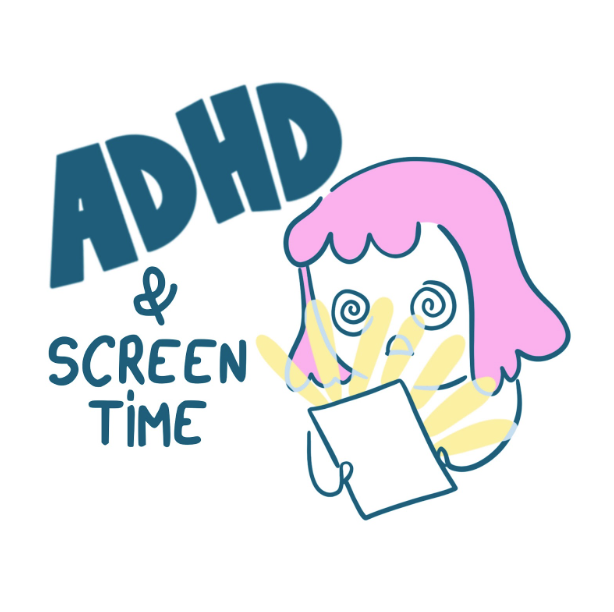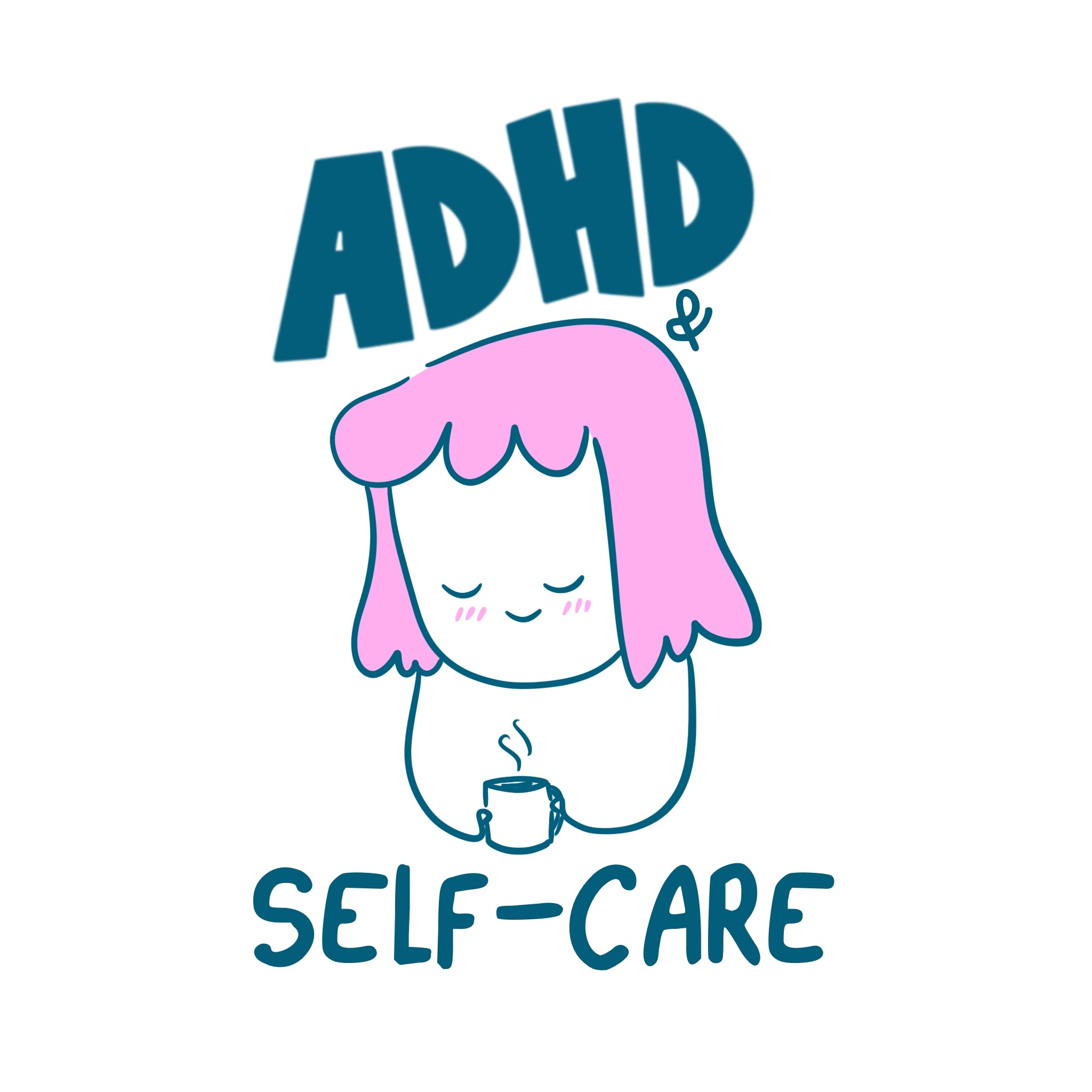Sleepless Minds: Is ADHD Behind Your Insomnia?
Have you ever found yourself staring at the ceiling at 2 AM, wrestling with a mind that won't quiet down? If so, you're not alone;many individuals with ADHD experience the same nightly battle, leading us to wonder: how deep is the link between ADHD and sleeplessness? 😴
In this article, we'll discuss:
- The intricate relationship between ADHD and insomnia.
- Common sleep disorders associated with ADHD.
- Practical tips for managing sleeplessness when you have ADHD.
- How lifestyle choices impact sleep quality for individuals with ADHD.
Ease into the world of ADHD and insomnia with us, and discover strategies to reclaim your night's rest. 😴
What is Insomnia, Exactly?
Insomnia is the most commonly talked about sleep disorder and is usually associated with difficulty falling asleep. This is sleep onset insomnia. But insomnia can also cause difficulties staying asleep (sleep maintenance insomnia) or getting back to sleep after waking too early.

Sleep disturbances like these can make us always feel tired, exhausted, and irritable in the morning, commonly referred to as daytime fatigue. 💢
You may experience ‘acute’ insomnia, which is short-term and usually directly related to a life event or situation, or ‘chronic’ insomnia, which is more long-term and often linked to lifestyle and environmental factors.

Since more and more people are experiencing this, the American Psychological Association (APA) now classifies this disorder as a medical condition and includes Insomnia Disorder in the Diagnostic and Statistical Manual of Mental Disorders (DSM-5) alongside disorders like ADHD 📕.
According to these guidelines, to be diagnosed with insomnia disorder, at least one of the following symptoms must be present:
- Difficulty initiating sleep
- Difficulty maintaining sleep (which denotes frequent awakenings)
- Waking up too early and having trouble getting back to sleep
Diagnosis also requires that these persistent symptoms be experienced for at least three months and must cause clinically significant distress, impairment of social or behavioral outlook, or affect our everyday functioning.
So how can Attention Deficit Hyperactivity Disorder be related to these sleep disturbances? 💤
The Intricate Relationship Between ADHD and Insomnia
Attention Deficit Hyperactivity Disorder is a neurodevelopmental disorder characterized by how it affects everyday activities, particularly those involving planning, organizing, and regulating emotions. 🤔 That's because our executive functions (located in the prefrontal cortex) and responsible for our executive functioning skills are slower to develop. 🧠
So how does that lead to a higher insomnia disorder prevalence in people with ADHD?
Well, each of these challenges has a web of consequences and knock-on effects, like how we interact with other people due to our inattention and tendency to interrupt, how we budget our finances due to being impulsive, or how our hyperactivity can cause us to use a lot of energy in a short period and lead to exhaustion. All these can be experienced by a person diagnosed with ADHD.
There are plenty of adult ADHD patients who develop unhealthy sleep habits because of the way ADHD symptoms affect their quality of life, especially untreated ADHD patients. Likewise, insomnia symptoms contribute to the aggravation of symptoms of ADHD. . 🫠

Hyperactivity, in particular, is a big reason for insomnia. One of the misconceptions about ADHD is that hyperactivity can only manifest physically. In actuality, hyperactivity can be mental too, and manifest as racing thoughts. These thoughts are often uncontrollable, bouncing around even at inconvenient times - especially at bedtime. 🦘

When this difficulty sleeping becomes a regular thing and is left unaddressed, that’s when a sleep disturbance can turn into a sleep disorder.
It’s not just those with the hyperactive-impulsive presentation of ADHD or combined type who can experience insomnia and sleep disorders. Those with the primarily inattentive type of ADHD can also experience racing thoughts and rumination due to anxiety.
See, the everyday challenges we mentioned, like difficulty planning, paying attention, or making careless mistakes can lead to a more stressful, anxiety-prone life. That’s why anxiety disorders are another comorbid condition with ADHD.
I occasionally go through periods of insomnia. Sometimes that’s because I’m stressed and anxious, and every little thing seems to spiral out of control. Other times, I’ll find myself unable to sleep, not for any negative reason, but because I’ve got too many ideas or bizarre unimportant thoughts that won’t quieten down. 💭
You Asked Us…
Why do people with ADHD struggle to sleep?
Individuals with ADHD often experience sleep problems due to hyperactivity and inattention. These symptoms disrupt sleep patterns, causing poor sleep quality and sleep disturbances such as insomnia disorder.
Take our fun online quiz to visualize your ADHD traits and learn more about your brain!
TAKE THE FREE TEST
Common Sleep Disorders Comorbid with ADHD
While insomnia may be the most commonly talked about, it isn’t the only sleep disturbance people with ADHD are more likely to experience due to comorbidity.
In fact, according to studies, about half of the adult ADHD population is affected by sleep disorders. And since insomnia disorder contributes to making ADHD symptoms more severe, it can become a vicious cycle. 🌪️

That's why it is essential to understand our situation and properly manage both Attention Deficit Hyperactivity Disorder and a sleep disorder.
But what are the other possible sleep disorders to look out for?
Here are a few. 👇
- Obstructive Sleep Apnea: A disorder where your breathing repeatedly stops and starts during sleep due to blocked airways.
- Insomnia Disorder: A chronic condition characterized by difficulty falling asleep, staying asleep, or both, leading to impaired daytime functioning.
- Circadian Rhythm Sleep Disorders: A group of conditions (including Delayed Sleep Phase Syndrome) where there is a persistent misalignment between a person’s sleep pattern and the natural environmental cycle of light and dark. ☀️🌑
- Restless Legs Syndrome: A neurological disorder marked by an uncontrollable urge to move one's legs, typically in the evenings or nights while sitting or lying down.
- Sleep Disordered Breathing: A term for sleep disruptions caused by abnormal breathing patterns, including conditions like sleep apnea.
- Sleep Walking: A behavior disorder that originates during deep sleep and results in walking or performing other complex behaviors while still mostly asleep. 🚶
- Narcolepsy: A chronic sleep disorder characterized by overwhelming daytime drowsiness and sudden attacks of sleep, often triggered by strong emotions.
Since these sleep disorders can co-occur with Attention Deficit Hyperactivity Disorder, it’s important to tailor treatment and management to the specific disorder you’re experiencing and break the cycle of poor sleep quality.
How Your Lifestyle Choices Impact Sleep Quality With ADHD
It’s not just ADHD symptoms themselves that can lead to insomnia disorders. Certain daily habits are just more common in those of us with ADHD, and negatively impact sleep, like dopamine-seeking behaviors or coffee. 👀

Caffeine
Caffeine intake can be tricky for ADHD brains. ☕ We often turn to them to battle our daytime sleepiness or keep us awake and alert.
But while coffee might be genuinely helpful in giving us the extra boost that we need during the day, it’s a double-edged sword as it can affect us longer than necessary and make it hard for us to fall asleep at night. That’s why it’s important to moderate our caffeine intake and avoid having it late in the afternoon or evening, so it has enough time to leave your system before bed. 🛏️
Set a time boundary for yourself, ideally four to six hours before your average bedtime, and if it’s past that time, skip the caffeine. ⏰
Technology and Screen Time
If you spend any amount of time online, you probably already know how screens and, specifically, the blue light they emit can stop you from falling asleep, plus the light or sound stimulation.
Technology is everywhere, and we have a gadget or app for everything, including our bedtime routines from morning alarms to pre-bed reading (intended for relaxation to help us sleep). But, of course, having our phones, which are a constant source of dopamine, in the bedroom is a source of temptation. Social media scrolling and video games are available just an arm’s reach away.
That’s why we need to regulate our use of these gadgets. Limit use at least an hour before bed. Try to use alarm clocks, rather than our phones. ⏰ If you have to use your phone, make sure night mode is enabled to limit blue light, or try wearing blue light glasses. 👓
ADHD Medication
Another ADHD-related factor that can give us poor sleep is our ADHD medications, which can be prescribed after an ADHD diagnosis. Their primary function is stimulating the brain to manage Attention Deficit Hyperactivity Disorder symptoms effectively.
While ADHD stimulant treatment does often do its job, some stimulant medications can also interfere with sleep, or induce insomnia symptoms, so you may need to talk to a professional if it’s causing insomnia. 💊
You Asked Us…
How many hours of sleep do people with ADHD need?
Like others, adults with ADHD should aim for 7-9 hours of sleep per night - and many people with adult ADHD may find they need closer to nine hours. However, ADHD symptoms can disrupt sleep, making it crucial to maintain good sleep hygiene and consult professionals if sleep disturbances persist.
Practical Tips for Managing Sleeplessness with ADHD
If you find yourself sleepless and exhausted as a result of sleep-onset insomnia symptoms, it’s time to make a few lifestyle changes so you can get the restorative sleep you deserve.
Several online tips present different approaches to getting the appropriate mood and setting the tone to have a good night's sleep, like lighting candles, having a warm bath, or reading.
It’s helpful to create a sleep routine that you know works for you, your body, and your mind. It might take a bit of trial and error, but try to listen to your body and identify the things that make you feel relaxed.
Every so often, I fall into a habit of playing mobile games in bed. When this happens, it takes me noticeably much longer to fall asleep than usual. Simply switching the game for a book on my Kindle is a simple habit change that makes a real difference.
To help lessen sleep problems and help you manage the ADHD and insomnia disorder comorbidity, here are a few suggestions that work for others:
- Create a wind-down routine that conditions your ADHD brain to sleep better. Routines such as reading a book or listening to calming music can help you relax before sleeping and reduce anxiety, which may come with Attention Deficit Hyperactivity Disorder (ADHD) 🎵. Routines, in general, are also a great way to treat ADHD symptoms.
- Journal or practice mindfulness to clear your mind of any unnecessary thoughts or worries before you try to sleep. There are plenty of meditation apps like Calm or Headspace that can help you unwind.
- Avoid consuming caffeine at least 4-6 hours before bedtime to avoid restlessness and difficulty falling asleep. It is beneficial to regulate caffeine intake to have a healthy sleep schedule ☕.
- When sleep difficulties affect your daily functioning to the extent that it is already hard to meet your daily tasks, it can be the time to seek professional help and get an accurate ADHD or insomnia disorder diagnosis before it significantly impacts your mental health.
Listen to brown noise. Some people with ADHD find brown noise (or red noise) reduces mental hyperactivity and helps them sleep. You can find playlists of this on YouTube, Spotify, or your music streaming platform of choice.

As adults, understanding the effects of Attention Deficit Hyperactivity Disorder on sleep can help us manage our symptoms properly. Paying attention to the underlying causes of insomnia and a better understanding of how it affects our sleeping patterns can significantly improve our quality of life.
You Asked Us…
How do you fix ADHD insomnia?
You can manage ADHD insomnia by establishing a consistent sleep schedule, reducing screen time before bed, and consulting healthcare providers for ADHD and sleep disorders treatment. Medications and cognitive therapy may help, too.
Key Takeaways
- Individuals with ADHD often struggle with sleep disturbances due to hyperactive minds and difficulty relaxing.
- ADHD medications can exacerbate sleep issues, making it challenging to fall and stay asleep.
- Insomnia involves difficulties in falling asleep, staying asleep, or returning to sleep after waking too early.
- ADHD is frequently associated with various sleep disorders, including obstructive sleep apnea, circadian rhythm sleep disorder, and restless legs syndrome.
- Establish a calming pre-sleep routine, such as reading or listening to soothing music, to signal to the body that it's time to wind down. 😴
- Seek professional help if sleep issues significantly impact daily life, as this may indicate a deeper problem requiring medical intervention.
Understanding the connection between ADHD and insomnia is the first step toward reclaiming a good night's rest. If you’re struggling with insomnia, remember simple changes can make a big impact. Start tonight: choose one tip from this article to try at bedtime and take the first step towards better sleep and better days. ✅
What’s Next?
If you want to learn more about ADHD and it’s connection to sleep, read these articles next:
ADHD and Self-Care: Strategies That Truly Work
Visualize and assess 25 ADHD traits and understand how they affect your life.
Learn more-2.png)
Frequently Asked Questions (FAQs)
What helps with ADHD insomnia?
Effective management of ADHD insomnia involves maintaining a regular sleep schedule, limiting exposure to screens before bedtime, and possibly using stimulant medications under a doctor's guidance. Behavioral strategies and good sleep hygiene also significantly help.
Is insomnia a symptom of ADHD?
Although not an official symptom, insomnia is commonly reported among ADHD patients, manifesting as difficulty falling asleep and maintaining sleep. This sleep disturbance is often exacerbated by the hyperactive and impulsive symptoms of ADHD.
What is the best sleep aid for ADHD?
The best sleep aid for ADHD often includes a combination of good sleep practices and possibly medication tailored to individual needs, such as melatonin. Consulting a healthcare provider specializing in sleep disorders or ADHD is advisable to determine appropriate treatments.

